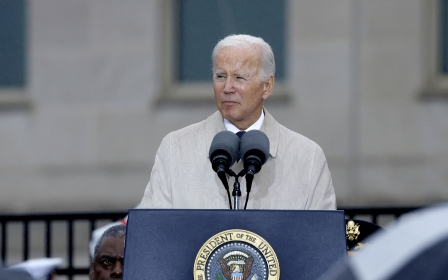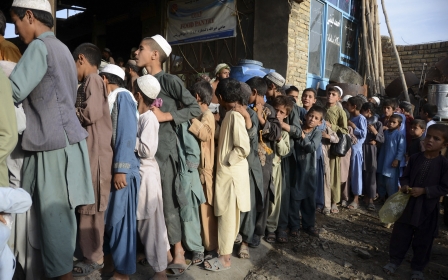Poll shows Black Americans view Iraq war as a mistake, divided on Afghanistan

Black Americans are split over supporting the invasion of Afghanistan, but a greater number believe it was wrong for the US to invade Iraq, according to a new survey released by the Carnegie Endowment for International Peace.
Asked whether the US made a mistake sending military forces to Afghanistan in 2001, 31 percent of respondents said "Yes", 32 percent responded "No", and 37 percent said they did not know.
Black Americans were more opposed to the 2003 invasion of Iraq, with 37 percent saying it was a mistake to send troops and only 29 percent approving; 34 percent saying they didn’t know.
Black Americans' views were generally in line with the US national population.
A May 2021 Economist survey found Americans just as divided on sending troops to Afghanistan, with 36 percent in favour and 39 percent against. A greater amount, 43 percent, viewed the US invasion of Iraq as a mistake.
Black Americans, however, were more ambivalent, with undecided responses scoring 10 percentage points higher than the Economist survey.
Respondents with at least one family member who served in Afghanistan or Iraq were the most likely to have an opinion about the wars, with about 43 and 44 percent in opposition, respectively, according to the Carnegie poll.
Higher numbers of Black Americans supported removing troops from both wars, with 47 percent backing the move in Afghanistan and 51 percent in Iraq.
But politically there were divisions. When Black Republicans were asked about removing troops from both wars, support fell to just above 40 percent. A slight majority of Democrats, 51 percent, said removing troops from Afghanistan was not a mistake.
An overwhelming majority of Black Americans, 63 percent for Afghanistan and 61 percent for Iraq, said the wars did not benefit the US. Those who polled this way cited a “weaker economy” and “weaker international reputation” as the main reasons.
Middle East Eye delivers independent and unrivalled coverage and analysis of the Middle East, North Africa and beyond. To learn more about republishing this content and the associated fees, please fill out this form. More about MEE can be found here.





